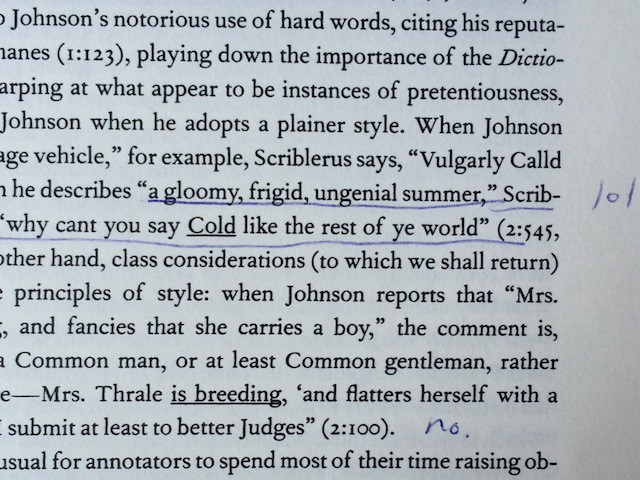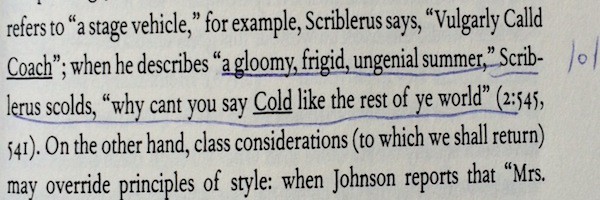On writing in books
by Alexandra Molotkow


From H.J. Jackson’s excellent Marginalia: Readers Writing in Books:
Pride of ownership, which leads readers initially to write their names in their books, carries through for some of them into marginalia, further acts of self-assertive appropriation. Others, however, admit only the ownership or presentation inscription and reject marginalia as desecration. They consider it their responsibility to keep the book intact and unaltered. For most of the twentieth century, these two groups — call them A for Annotator and B for Bibliophile — have existed in a state of mutual incomprehension. (A thinks that B might as well stand for Bore, and B that A is for Anarchist.) B as a matter of course considers A to be slovenly, irresponsible, and self-indulgent… The essayist Anne Fadiman, speaking up recently for the As, tries to collapse the distinction by arguing that As are book lovers too, only in a different way. Bs, she suggests, are ‘courtly’ lovers who approach a book with ‘Platonic adoration, a noble but doomed attempt to conserve forever the state of perfect chastity in which it had left the bookseller.’ For them marginalia are anathema: ‘The most permanent, and thus to a courtly lover the most terrible, thing one can leave in a book is one’s own words.’ The uninhibited As, on the other hand, are ‘carnal’ lovers to whom ‘a book’s words were holy, but the paper, cloth, cardboard, glue, thread, and ink that contained it were a mere vessel, and it was no sacrilege to treat them as wantonly as desire and pragmatism dictated. Hard use was a sign not of disrespect but of intimacy.’”
So: are you an A or a B? Do you mark up your books or do you foolscap like a good literary citizen? (I am 110% an A.)
Consider these comments the blankest of margins.